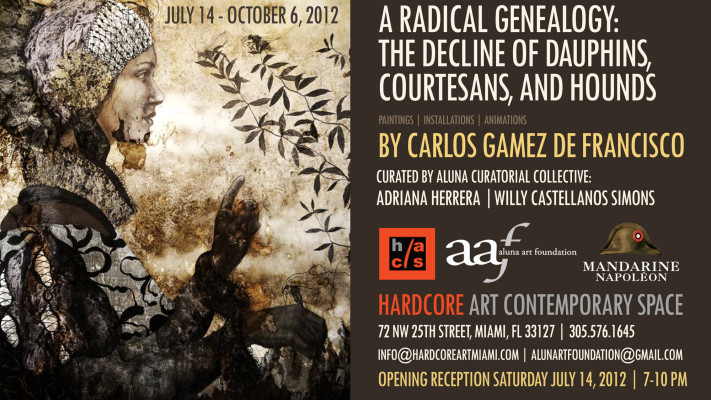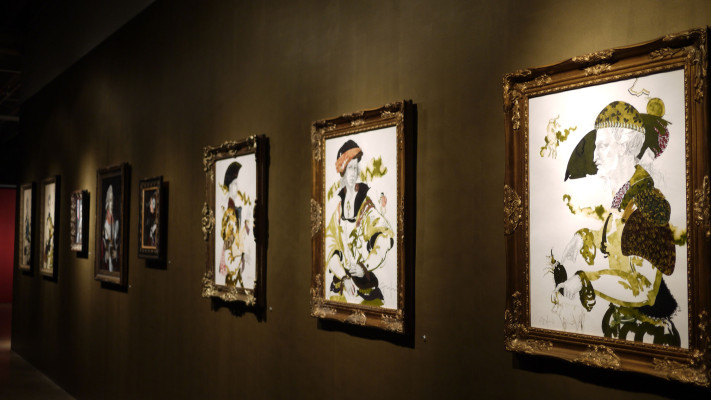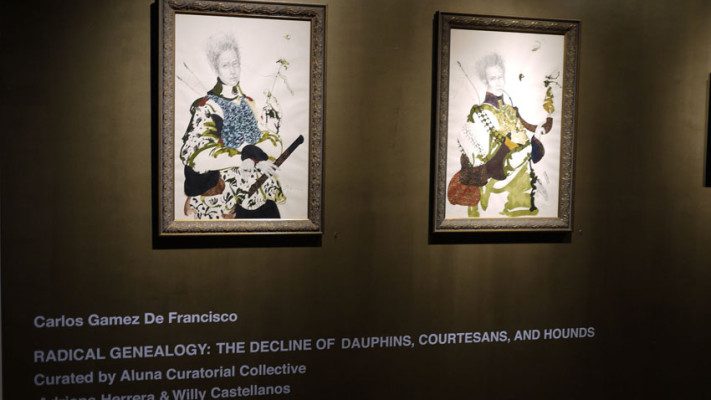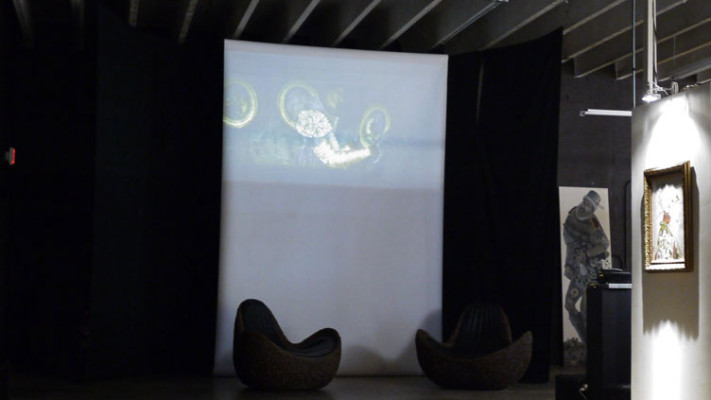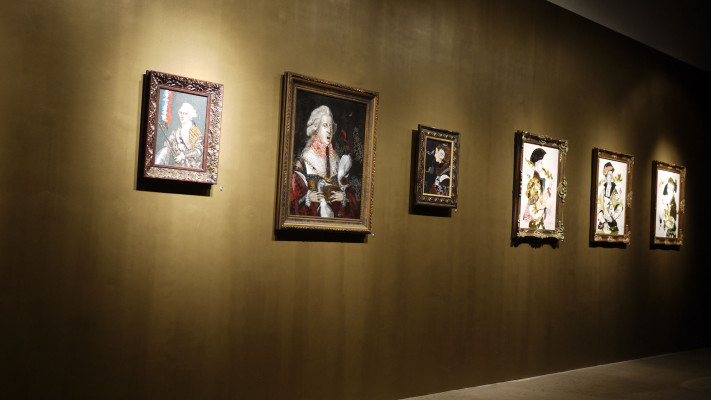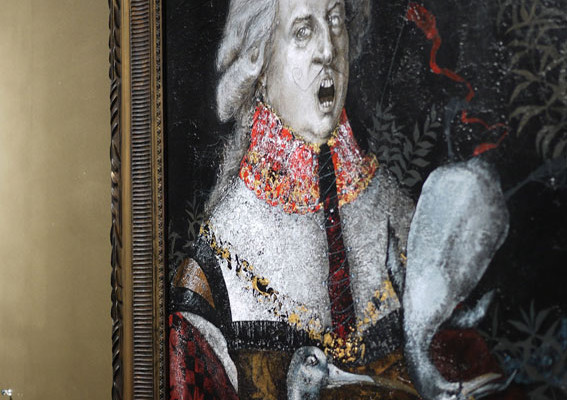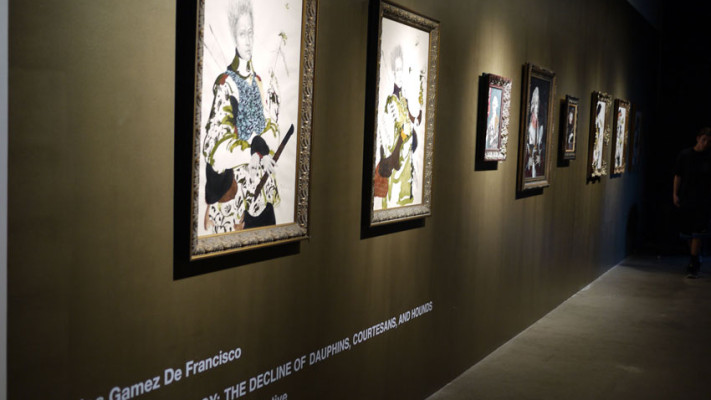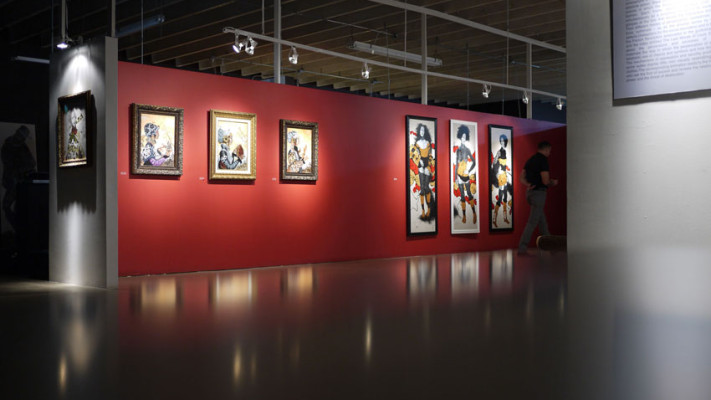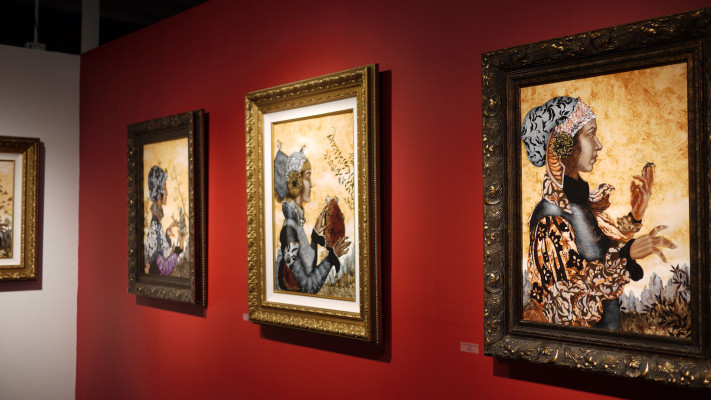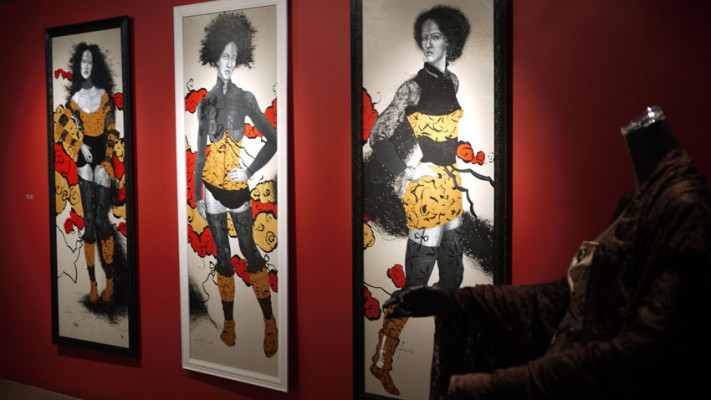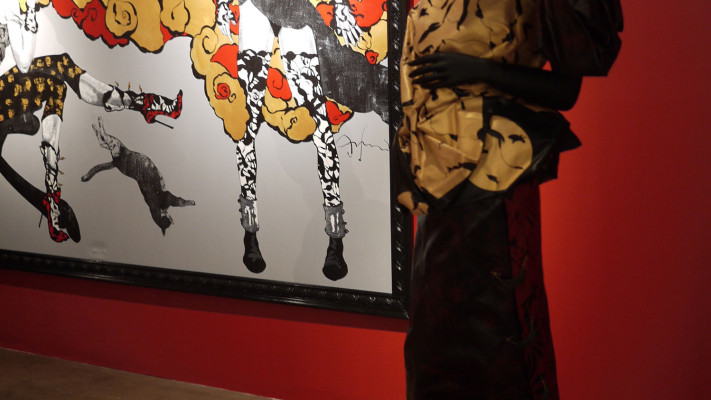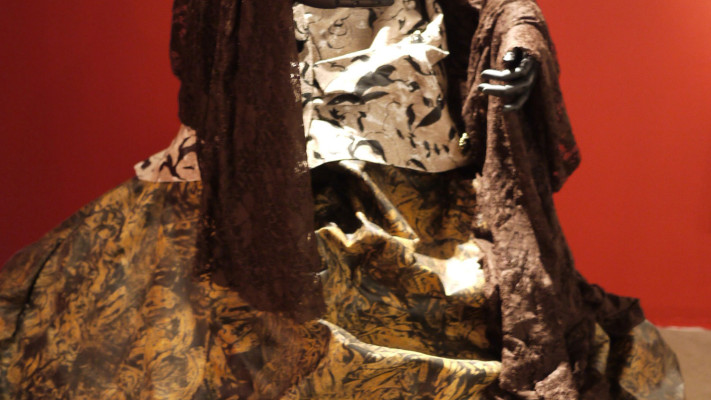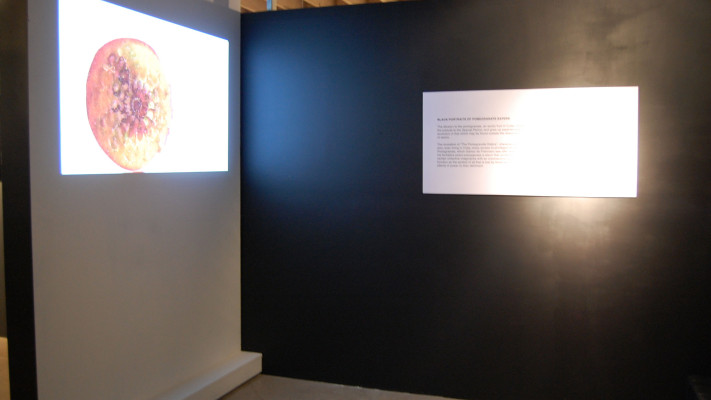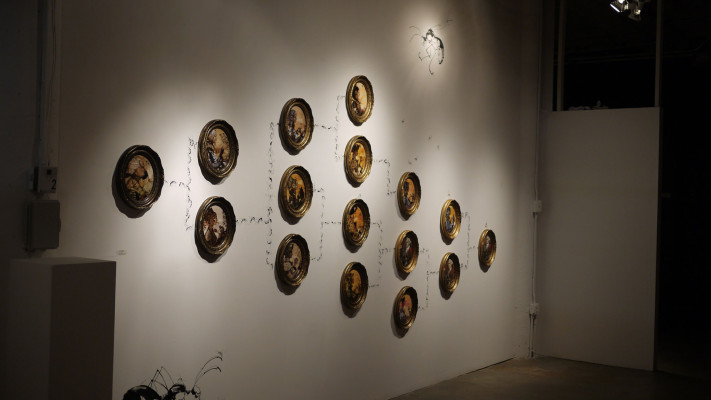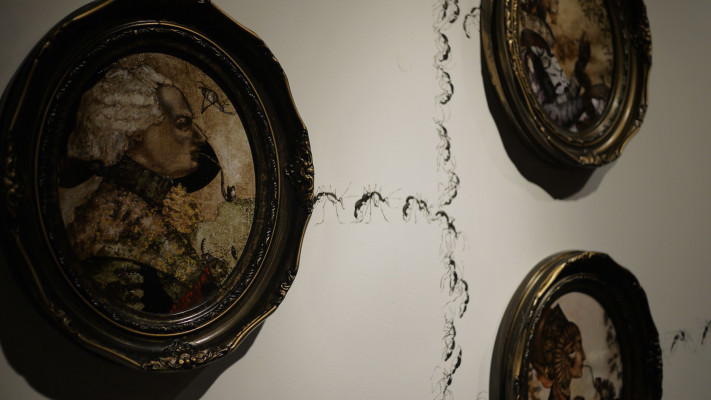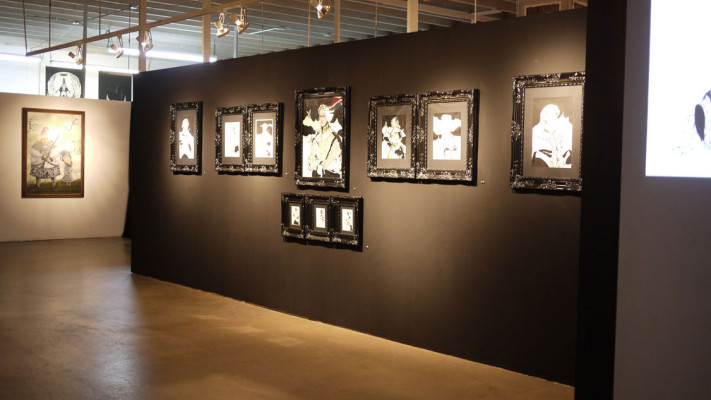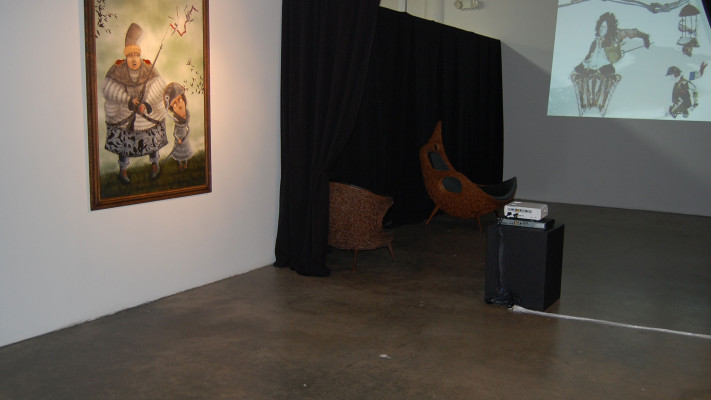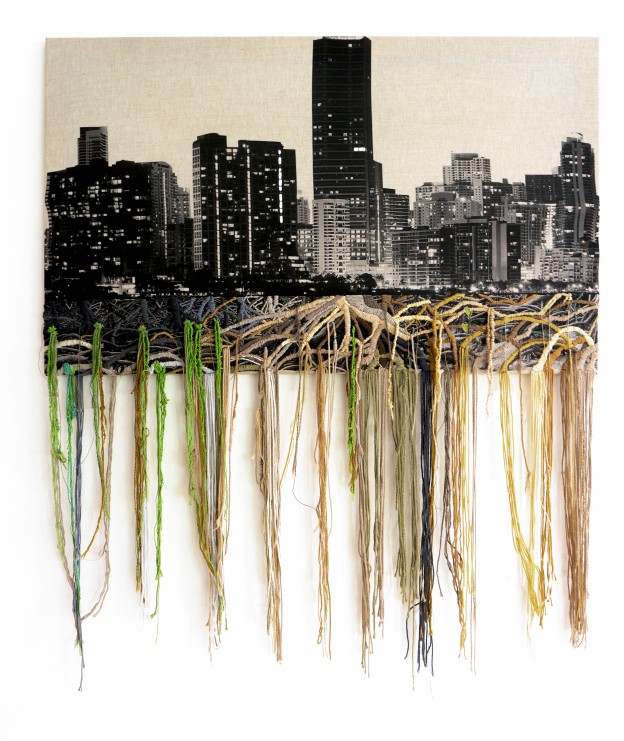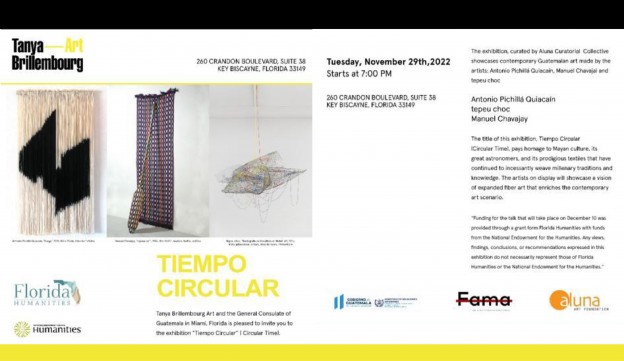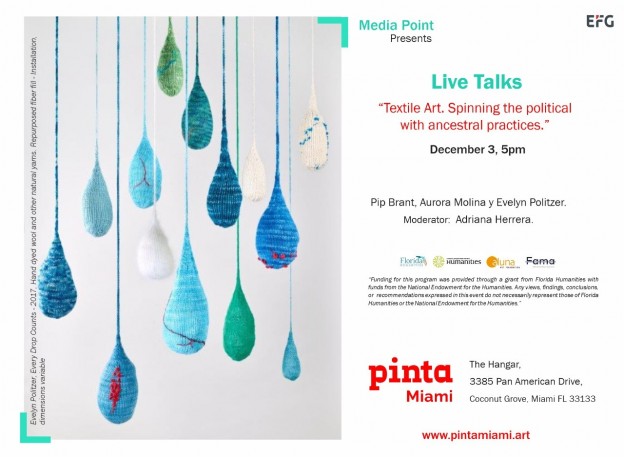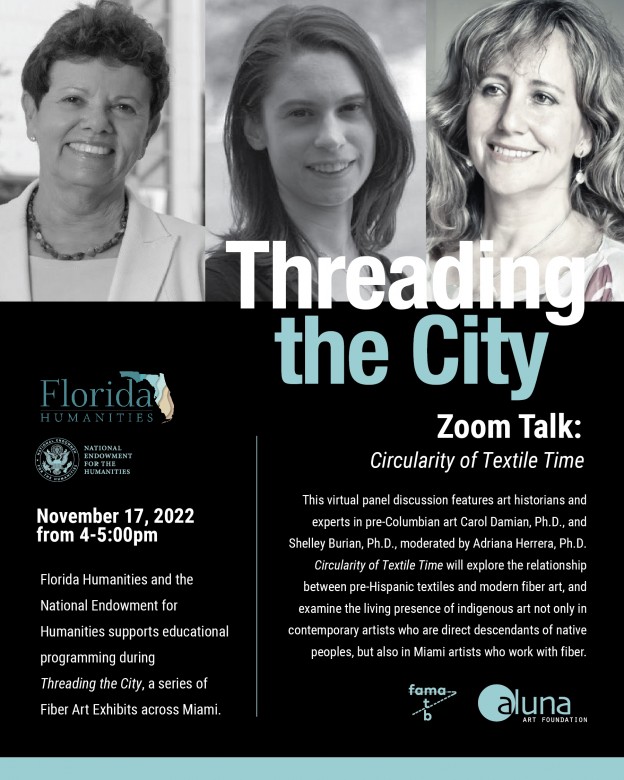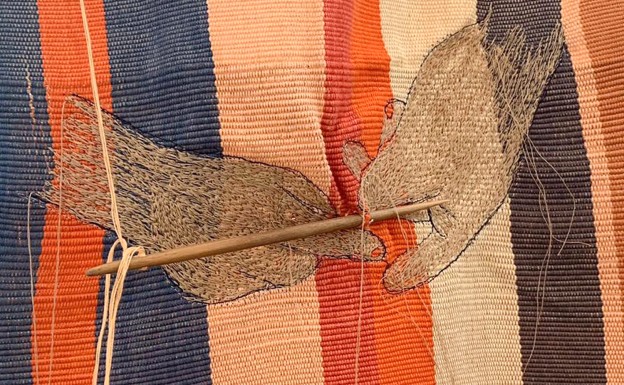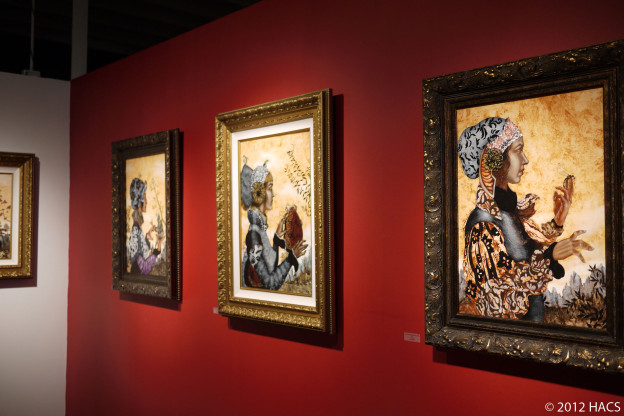
A Radical Genealogy: The Decline of Dauphins, Courtesans, and Hounds
A solo show by Carlos Gámez de Francisco
Curated by Aluna Curatorial Collective
From July 14th to October 6th, 2012, at Hardcore Contemporary Art Space Miami
Press Release
Hardcore Art Contemporary Space presents the first solo exhibition in Miami of Cuban artist Carlos Gámez de Francisco (b. Holguín, Cuba, 1987): “Radical Genealogy: The Decline of Dauphins, Courtesans, and Hounds”, curated by Aluna Curatorial Collective | Adriana Herrera & Willy Castellanos). Gámez appropriates the aesthetic of the opulent and decadent atmosphere of the days of the last French monarchs to create a parable of absolute power.
Black humor serves as the narrative thread linking pictorial scenes in which the bloody and the absurd converge with ostentatious fashion. Each frame opens a window onto a story that functions simultaneously as a prophetic mirror: in its background one may catch a glimpse of the fate that awaits the characters thriving on excessive power. Its different modes of perpetuation, sometimes associated to a perverted Eros, culminate − as do the diverse series and animations by the artist − in the genetic defects (metaphors for the social disorders) and in the death sentences which the French Revolution associated with the guillotine. The famous attraction of the abyss exerted by the unrestrained libido is as strong and deceitful as the seduction exerted by the libido imperandi, the wish for unlimited power.
Despite being a young emerging artist, this will be his 13th solo exhibit. In 2011, he won the Norman Kohlepp Merit Awards, from the Louisville Visual Art Association, Louisville, Kentucky. In 2007 he won the award for Best Short Film in the Seventh National Festival of Audiovisual “By First Time”, Holguín, Cuba.
ABOUT THE EXHIBITION
By Adriana Herrera and Willy Castellanos
Carlos Gámez de Francisco appropriates the opulent − and decadent − atmosphere of the days of the last French monarchs to create a parable of absolute power. Black humor serves as the narrative thread linking pictorial scenes in which the bloody and the absurd converge with ostentatious fashion. Each frame opens a window onto a story that functions simultaneously as a prophetic mirror: in its background one may catch a glimpse of the fate that awaits the characters thriving on excessive power. Their different modes of perpetuation, sometimes associated to a perverted Eros, culminate − as do the diverse series by the artist − in the genetic defects (metaphors for the social disorders) and in the death sentences which the French Revolution associated to the guillotine.
“The Last Words of Louis XVI”
The series of paintings and the video entitled The Last Words of Louis XVI are structured as fable about the perversions and excesses of power. These works incarnate the way in which the perpetuation of any in power generates a fetishistic use of objects and symbols and how this permeates everyday life.
To look at the costumes of the courtiers of the last days of the monarchy in France is to catch a glimpse of the control exercised by every absolutist system over social customs and the distribution of privileges, until it finally penetrates the very expressions of individuality.
The mechanisms of oppression and servility proliferate. It’s no wonder that some ladies display little men visually resembling insects pinned onto their clothes. The corresponding animation leads to the tragic fate reserved to those who eat the fruit of excess and reveals the relationship between the Eros of power and the threat of destruction.
“Genealogy of Power”
Perpetuation in power, under the modality of excessive individual duration and hereditary transfer of power, is represented by a family tree in which genetic disorders flourish as a result of consanguinity. The allusion to this phenomenon, which characterized European aristocracy during the preceding centuries, tacitly resonates with the new contemporary forms of nepotism, as may be perceived in Cuba itself. Insightfully, the artist correlates in a timeless way, the forms of promiscuity present in power with social decadence and degeneration.
“Radical Fashion”
The rituality of costumes as investitures transferring their attributes to those who wear them responds to the fact that they reflect the negotiations of power both in terms of individual corporality and of the social body. The notion of luxury varies with the times and the different contexts, but it is always associated to the privileges that are offered. The seduction they exert among those who succumb to the insinuations of power is reflected in an oblique way in those women who tie − and entangle − bodies and costumes with an obscure narrative. The famous attraction of the abyss exerted by the unrestrained libido is as strong and deceitful as the seduction exerted by the libido imperandi, the wish for unlimited power.
“Black Portraits of the Pomegranate Eaters”
The allusion to the pomegranate, an exotic fruit in Cuba, contains a biographical reference for the artist, who was born during the prelude to the Special Period, and grew up experiencing economic and migratory restrictions. The fruit represents the exoticism of that which may be found outside the island and cannot be tasted until one succeeds in leaving it. It is an object of desire.
The evocation of “the pomegranate eaters”, characters who do have access to these fruits − as might be the case of those who, even living in Cuba, enjoy access to privileged things− has been inspired by the Russian film The color of the pomegranate, which Gámez de Francisco saw after leaving the Island. The recurrence of this aesthetic that prevailed during his formative years presupposes a return that contains the paradox of exile: now that he can eat “pomegranates”, he evokes certain collective imaginaries with an unconscious content of nostalgia.
The fruit ceases to be a metaphor of the forbidden to function as the symbol of all that is lost by those who are forced to leave their land at any time or place as a result of the effects of power to their detriment.



